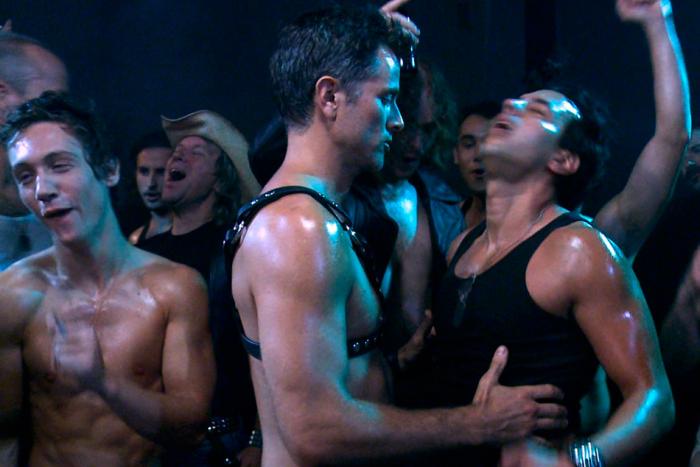The sultry ambience of New Orleans and a secret society of women intent on uniting in pleasure set the stage for Lisa Gabrielle’s best-selling S.E.C.R.E.T., written under the pseudonym L. Marie Adeline. But as any good writer knows, a great idea (strong female seeks man(s) for pleasure, no relationship necessary) needs an attentive editor to make sure the work doesn’t fall off track. Here, Gabrielle talks with her editor Nita Pronovost of Doubleday Canada about the language of sex, life after forty, and whether S.E.C.R.E.T. is a feminist book.
NITA PRONOVOST: When you first conceived of this book, did you have a character that sprang into your mind. Did you have scenarios or was it concept first?
LISA GABRIELE: Definitely, S.E.C.R.E.T. was a concept first. I wanted something that had a fantastical quality to it right away. A mansion came first, then this idea of a systemic, sexual, step-by-step process came second.
I had read the first Fifty Shades of Grey book, and I wanted to be part of the discussion, but it wasn’t a book that spoke to me. Not that I didn’t admire E.L. James. What I admire most is the series’ inception, frankly, which was pure fan fiction. I love that its origins were so innocent, and that, to me, is the essence of what writing and reading is all about.
PRONOVOST: When we first discussed it, I was thinking about fringes of the trend. Here we have the erotica trend, it’s in full bloom, and the question became: why are women responding to this, and who isn’t? And the “who isn’t” was the important part. Although I have great admiration for E.L. James, I wasn’t necessarily responding to her work the way her legions of fans were. The question became: if you and I were feeling left out, who else is feeling that, too? And how can we include those readers in genre writing that’s erotic, but different—perhaps examining the sexual journeys of women who aren’t nubile multi-orgasmic virgins.
Had you thought a lot about erotica and porn, literary or otherwise, before this?
GABRIELE: I have written for some online magazines well-known for their erotic content. Still, I was always surprised to be included in erotic anthologies because I never really saw myself as someone who wrote sexy material. I always thought the sex that I wrote was a bit dark and gamey…
PRONOVOST: [laughs] Gamey?
GABRIELE: Well, seriously. I mostly wrote about awkward, uncomfortable sexual moments, not unlike the sex scenes in Girls. In fact, one critic called my loss-of-virginity scene in Tempting Faith DiNapoli “white trash date rape.” So, you know, that’s not exactly an erotic way to look at sex.
I love Junot Diaz, I’m a huge fan of Tamara Faith Berger’s work, and there’s a rawness to that kind of sex. I think we’ve touched on those elements in S.E.C.R.E.T.. But I think S.E.C.R.E.T. has a patina of fantasy and aspiration about it. It’s the kind of sex that you wish you could have.
PRONOVOST: You mentioned Junot Diaz in terms of sex writing that you’ve liked. What did you read to get into the head-space to write S.E.C.R.E.T.?
GABRIELE: I read Nancy Friday’s book My Secret Garden. It’s a shocking book. I had never read it before. It was a revelation to me. Oh my god, there’s so much to the feminine imagination that I didn’t know about. I mean, I thought I had an imagination but my god, this book was humbling and very titillating and lovely. Kudos to Nancy Friday for getting women to open up like that. So I read that, and I read Fifty Shades, especially the sex scenes, which I found very accomplished. There are also a couple of Alice Munro stories I’ve read, which are deeply memorable for their frank sexuality.
I’m now writing book two in the S.E.C.R.E.T. series, upping the ante a bit. My new character, Dauphine, is going to go at this a little differently than Cassie.
PRONOVOST: That’s the beauty of genre fiction: discovering its innate boundaries and working within them. When you approach a book two in a series like this, it’s all about exploring the space and finding how to use limits to open up possibilities.
GABRIELE: That’s true. When I got the first set of notes back from you for the first third of book two I was relieved, in a way, to be reminded that there was a format and not to break it. The impulse is to do that.
PRONOVOST: You have called yourself a feminist. Is S.E.C.R.E.T. a feminist book?
GABRIELE: Well, yes, in that, for me, feminism is a very simple thing. It’s equality. I don’t like to get into the “shoulds” and “woulds” with women. There are many different choices for women within this circus tent of feminism, and what I like about the notion of equality in S.E.C.R.E.T. is that the tables have been turned. The women are treating the men as sexual equals, in that sense. I hope that showing a group of women supporting each other and not competing against one another for men also has a feminist utopian edge.
It isn’t about a journey of a woman who wants to become better in bed. It’s the journey of a woman who’s using sexual expression as a way of improving her whole life, just as others would use spiritual expression. You know, they say whatever is the most vexing aspect of your life can also be the portal that you can often go through to heal. And when you come out the other end often every other aspect of your life improves if you’ve heal that one vexing aspect. For Cassie that aspect is her stunted sexuality, and in enlivening that, she’s able to enliven all aspects of her life.
PRONOVOST: I think it’s interesting the choice you made to invert the stereotype. In S.E.C.R.E.T., it’s not about getting the guy.
GABRIELE: Yeah, that’s why I threw it in there—to remind us that our bodies do betray us. It’s a well-known fact that our bodies release hormones that make us bond with the people we have sex with, for the most part. I’ve done that, I don’t know any woman that hasn’t done that. You bond with the guy that your body says, “Yeah, he’s the one” [laughs] and then you look back on yourself 18 months later when that trance is over and the hormones have worn down and you see a crazy person in your wake. I don’t know anyone who hasn’t gone through that, like, “what was I thinking?” Well, you weren’t. It takes a strong matriarchy to pull her fingers off and remind her that she’s not done yet, “step away from the hot man.”
I like the dual journey of Cassie letting go of the men that she has great, grand sex relations with, and had her develop sexual feelings with men who she has developed healthy emotional attachments to. I mean, how many people actually achieve that? It was a fun thing to explore.
PRONOVOST: If there’s one thing you want readers to take away from S.E.C.R.E.T. what would it be?
GABRIELE: I come back to this idea that high tide floats all boats. With women, in particular, sisterhood is important. It’s not only about the intimacy between men and women, but about the intimacy in friendships, intimacy that allows one woman, Cassie, to develop the courage to take risks.
PRONOVOST: Finally, a book that’s supposed to be about women’s relationships to men and to fantasy men is actually a book about the intimacy in women’s lives.
GABRIELE: It is. It’s about women’s friendships and women’s relationships at all levels and stages in our lives. I’ve discovered this at 45-years-old: my life has gotten more interesting as I’ve gotten older. When I turned 40 —it’s like when a spaceship gets launched into space and its shaking and making noise and then it hits space and “boom” it’s quiet. That’s what happened when I turned forty. You know “you didn’t get married, you didn’t have kids,” all that noise that I was grappling with and those fears just went away. I think women aren’t often told this.
PRONOVOST: It’s true that there’s a deep mythology around that, and many women grapple with it. If we don’t meet a man, marry him, and have children with him, we’re not part of the story.
GABRIELE: And yet in S.E.C.R.E.T. there’s a group of women whose primary focus is not really men, it’s other women. Which is a paradox, because men are involved. I love the fact that Cassie has been embraced, at 35-years-old, as a viable sexual character.
PRONOVOST: Much has been said about the language in Fifty Shades, there’s a lot of blushing. And your language has been described as “vanilla.” What do you think about that?
GABRIELE: I didn’t really want to use the words cock and pussy—I don’t know if language has done sex a great service to be honest with you, except for a few exceptions. As I mentioned, there’s Tamara Faith Berger who handles it so deliciously and well, and Junot Diaz who has such a facility for using the most harsh words for tender acts. I don’t have that skill. What I have instead is the ability to inhabit this emotional life and see sex as an offshoot of that. I think it makes sense that my language is more emotional than it is graphic. It was very true to the character of Cassie. Those words just didn’t feel appropriate. I also think it’s more of a challenge for a writer to find words for acts and write about sex without using “sexy” words. That’s kind of my goal and it may even be what typifies and separates S.E.C.R.E.T., that it’s erotic as well as emotional.
PRONOVOST: I think that remits back to the difference between erotica and porn. A lot of those terms are not terms that really derive necessarily from women.
GABRIELE: Sure.
PRONOVOST: They’re about women. They’re terms we associate with pornography, not erotica. So the main difference is desire again. If you have a character like Cassie, who’s going on a sexual adventure for the first time in her life, would she not be discovering the language that suits her world. Why would she remit to the language of pornography?
GABRIELE: Yeah, and it’s funny, books in particular, the sex is so subjective. One woman’s vanilla is another woman’s shock. It’s also enticing women that might never read erotica, it might blow their bangs back, where other women might be reading it and saying “this does nothing for me. I want harder, faster.” The lovely thing about this genre is that it’s so huge and there are masters out there, people who know how to titillate at every level and stage sexually, and I’m just dipping my toe in these waters. I’m just starting to explore this world I’ve created.






